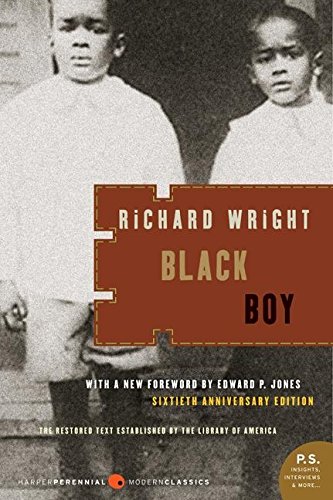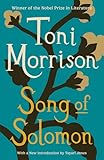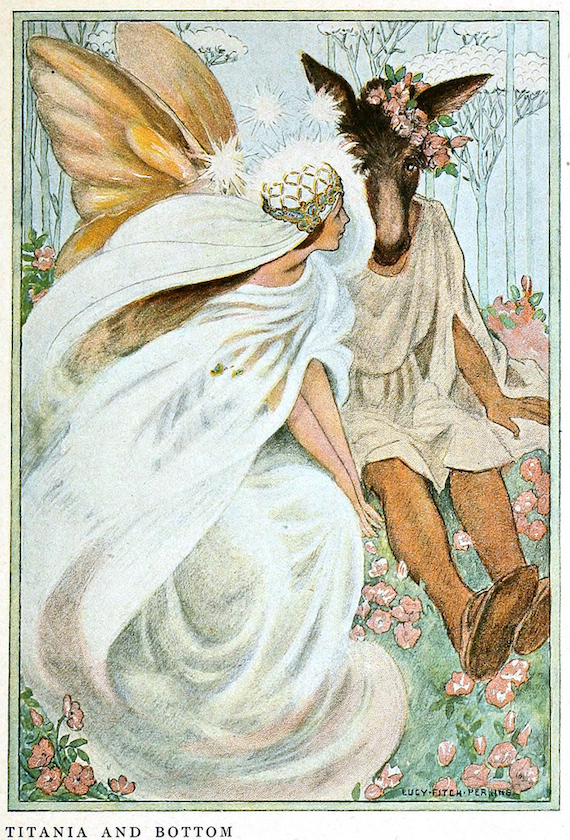
June is sickly sweet; it’s insipid. Is that because it’s so warm, or because it rhymes so easily? June / moon / spoon / balloon… But while Robert Burns happily rhymed his “red, red rose / That’s newly sprung in June” with a “melody / that’s sweetly played in tune,” Gwendolyn Brooks burned off any sugar in the terse rhythms of “We Real Cool”: the rhyme she finds for “Jazz June”? “Die soon.”
Tom Nissley’s column A Reader’s Book of Days is adapted from his book of the same name.

 June is called “midsummer,” even though it’s the beginning, not the middle, of the season. It’s the traditional month for weddings — Shakespeare’s Midsummer Night’s Dream is overflowing with matrimony — but it’s also the home of another modern ritual, graduation day — or, as it’s more evocatively known, commencement, an ending that’s a beginning. It’s an occasion that brings out both hope and world-weariness in elders and advice givers. It brought David Foster Wallace, in his 2005 Kenyon College commencement address reprinted as This Is Water, perhaps as close as he ever came to the unironic statement his busy mind was striving for.
June is called “midsummer,” even though it’s the beginning, not the middle, of the season. It’s the traditional month for weddings — Shakespeare’s Midsummer Night’s Dream is overflowing with matrimony — but it’s also the home of another modern ritual, graduation day — or, as it’s more evocatively known, commencement, an ending that’s a beginning. It’s an occasion that brings out both hope and world-weariness in elders and advice givers. It brought David Foster Wallace, in his 2005 Kenyon College commencement address reprinted as This Is Water, perhaps as close as he ever came to the unironic statement his busy mind was striving for.
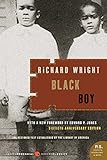
 But the graduation speech is an especially potent scene in African American literature. There’s the narrator’s friend “Shiny” in James Weldon Johnson’s Autobiography of an Ex-Colored Man, speaking to a white audience like “a gladiator tossed into the arena and bade to fight for his life,” and there’s Richard Wright, in his memoir Black Boy, giving a rough speech he’d composed himself instead of the one written, cynically, for him. Ralph Ellison’s Invisible Man is invited to give his class speech before the town’s leading white citizens, only to find himself instead pitted in a “battle royal” with his classmates, while in Maya Angelou’s I Know Why the Caged Bird Sings, a young student follows a white dignitary’s patronizing words to the graduates with an unprompted and subversive leading of the “Negro national anthem,” “Lift Ev’ry Voice and Sing” (whose lyrics, to bring the tradition full circle, were written by none other than James Weldon Johnson).
But the graduation speech is an especially potent scene in African American literature. There’s the narrator’s friend “Shiny” in James Weldon Johnson’s Autobiography of an Ex-Colored Man, speaking to a white audience like “a gladiator tossed into the arena and bade to fight for his life,” and there’s Richard Wright, in his memoir Black Boy, giving a rough speech he’d composed himself instead of the one written, cynically, for him. Ralph Ellison’s Invisible Man is invited to give his class speech before the town’s leading white citizens, only to find himself instead pitted in a “battle royal” with his classmates, while in Maya Angelou’s I Know Why the Caged Bird Sings, a young student follows a white dignitary’s patronizing words to the graduates with an unprompted and subversive leading of the “Negro national anthem,” “Lift Ev’ry Voice and Sing” (whose lyrics, to bring the tradition full circle, were written by none other than James Weldon Johnson).
Here is a selection of June reading for the beginnings and endings that midsummer brings:
 McTeague by Frank Norris (1899)
McTeague by Frank Norris (1899)
One of American literature’s most memorable — and most disastrous — weddings ends, after an orgy of oyster soup, stewed prunes, roast goose, and champagne, with Trina whispering to her groom, McTeague, “Oh, you must be very good to me — very, very good to me, dear, for you’re all that I have in the world now.”
Ulysses by James Joyce (1922)
Five days after Joyce met Nora Barnacle on a Dublin street, and one day after she stood him up, they went on their first date. Eighteen years later, he celebrated that day — June 16, 1904 — with a book.
 Suite Française by Irène Némirovsky (1942/2004)
Suite Française by Irène Némirovsky (1942/2004)
After reading Colette’s account of the migration out of Paris forced by the German occupation, Némirovsky remarked, “If that’s all she could get out of June, I’m not worried,” and continued work on her own version, “Storm in June,” the first of the two sections of her fictional suite she’d survive the Nazis long enough to complete.
“The Lottery” by Shirley Jackson (1948)
It’s a “clear and sunny” morning on June 27 when the men, women, and children of an unnamed village assemble to conduct their annual choosing of lots.
“The Day Lady Died” by Frank O’Hara (1959)
Writing during the lunch hour of his job at the Museum of Modern Art, O’Hara gathered the moments of his afternoon into a poem: the train schedule to Long Island, a shoeshine, the “quandariness” of choosing a book, the sweat of summer, and the memory of how Billie Holiday once took his breath away.
Blues for Mister Charlie by James Baldwin (1964) and “Where Is the Voice Coming From?” by Eudora Welty (1963)
On the day (June 12, 1963) Medgar Evers was assassinated, Baldwin vowed that “nothing under heaven would prevent” him from finishing the play he was working on, about another notorious murder of a black man in Mississippi, while Welty, on hearing of the murder in her hometown of Jackson, quickly wrote a story, told from the mind of the presumed killer, that was published in The New Yorker within weeks.
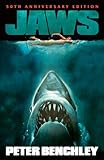 Jaws by Peter Benchley (1974)
Jaws by Peter Benchley (1974)
Is the greatest beach read the one that could keep you from ever wanting to go into the water again?
Blind Ambition by John Dean (197?)
We know the story of the June 1972 Watergate break-in best from All the President’s Men, but Dean’s insider’s memoir of how it quickly went wrong, co-written with future civil rights historian Taylor Branch, is an equally thrilling and well-told tale.
 The Public Burning by Robert Coover (1977)
The Public Burning by Robert Coover (1977)
We’ve never quite known what to do with The Public Burning, Coover’s wild American pageant starring Nixon, a foul and folksy Uncle Sam, and the Rosenbergs, whose June execution is at its center: it’s too long, too angry, too crazy, and, for the publisher’s lawyers who said it couldn’t be released while its main character, the freshly deposed president, was still alive, it was too soon.
Sleepless Nights by Elizabeth Hardwick (1979)
Sleepless Nights begins in a hot, blinding June but soon fragments across time, into memories from the narrator’s life — which closely resembles Hardwick’s — and stories from the lives of others, a method that has the paradoxical effect of heightening time’s power.
 Clockers by Richard Price (1992)
Clockers by Richard Price (1992)
It’s often said that no modern novel can match the storytelling power of The Wire, but its creators drew inspiration from Price’s novel of an unsolved summertime murder in the low-level New Jersey crack trade, and for their third season they added Price to their scriptwriting team.
When the World Was Steady by Claire Messud (1995)
Bali is hot but dry in June, while the Isle of Skye is gray and wet, at least until the weather makes yet another change. Messud’s first novel follows two English sisters just on the far side of middle age who find themselves on those distant and different islands, reckoning with the choices they’ve made and suddenly open to the life around them.
“Brokeback Mountain” by Annie Proulx (1997)
Meeting again nearly four summers after they last parted on Brokeback Mountain, Jack Twist and Ennis del Mar are drawn together with such a jolt that Jack’s teeth draw blood from Ennis’s mouth.
 Three Junes by Julia Glass (2002)
Three Junes by Julia Glass (2002)
Three Junes might well be called “Three Funerals”–each of its three sections, set in summers that stretch across a decade, takes place in the wake of a death. But the warmth of the month in Glass’s title hints at the story inside, and the way her characters hold on to life wherever they find it.
Image via circasassy/Flickr


